Pigeon Feather Meaning: Spiritual Symbolism and Cultural Significance
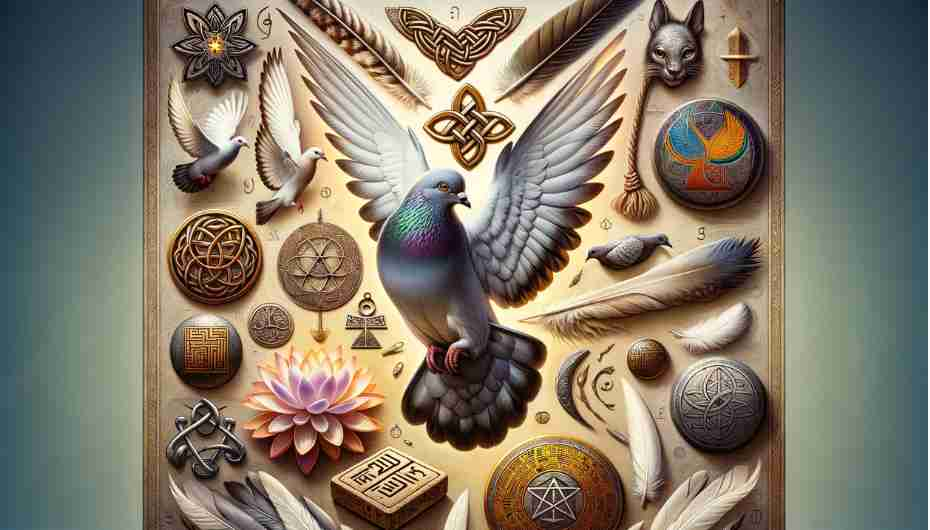
Pigeon feathers hold deep spiritual symbolism and cultural significance across societies worldwide. These ubiquitous gray feathers can convey messages from the divine, connect us to the spirit realm, and remind us of pigeons’ historical roles as messengers, symbols of love, and icons of urban life.
By exploring the multifaceted meaning behind pigeon feathers in Christianity, Hinduism, Celtic culture, ancient Egypt, Chinese traditions, and more, we can gain profound insight into how they have represented concepts like faith, hope, abundance, communication, and adaptability throughout the ages.
| Cultural or Spiritual Context | Key Symbolisms of Pigeon Feathers |
|---|---|
| Christianity | Holy Spirit, divine presence, blessings |
| Hinduism | Wisdom, intelligence, communication |
| Celtic Culture | Messengers, protection, spiritual connection |
| Native American Culture | Messengers, guidance, balance |
| Ancient Egypt | Sacredness, love, fertility, spiritual connection |
| Japanese Shintoism | Purity, cleansing, divine blessings |
| Cultural Significance | – Ancient Egypt: Sacred birds, religious rituals |
| – Chinese Culture: Marital fidelity, longevity, betrothal gifts | |
| – War and Communication: Vital role in wartime communication | |
| – Urban Environments: Adaptability, resilience | |
| Personal Interpretation | – Context of Discovery: Location and emotional state |
| – Intuitive Reaction: Immediate feelings, personal intuition |
Spiritual Symbolism of Pigeon Feathers
Throughout history, pigeon feathers have held significant spiritual symbolism across diverse cultures and belief systems, each attributing unique meanings and implications to these delicate plumes.
Pigeon Feathers in Christianity
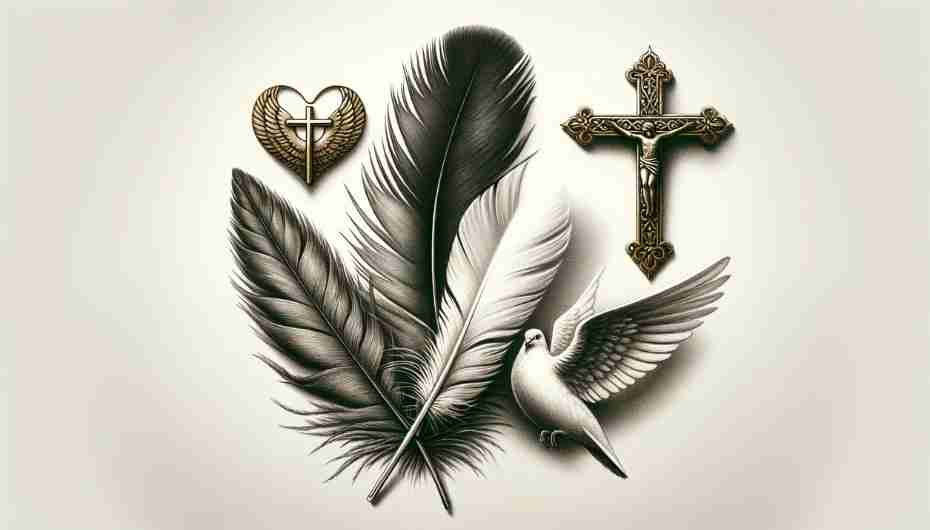
In Christian symbolism, the pigeon, often referred to as the dove, is predominantly associated with the Holy Spirit. Pigeon feathers are seen as tangible representations of divine presence and serve as a reminder of God’s blessings. They symbolize:
- Holy Spirit: Pigeon feathers are tangible representations of the Holy Spirit’s presence, signifying a connection to the divine.
- God’s Blessings: Finding a pigeon feather may be interpreted as a sign of God’s favor and blessings upon the finder.
Pigeon Feathers in Hinduism
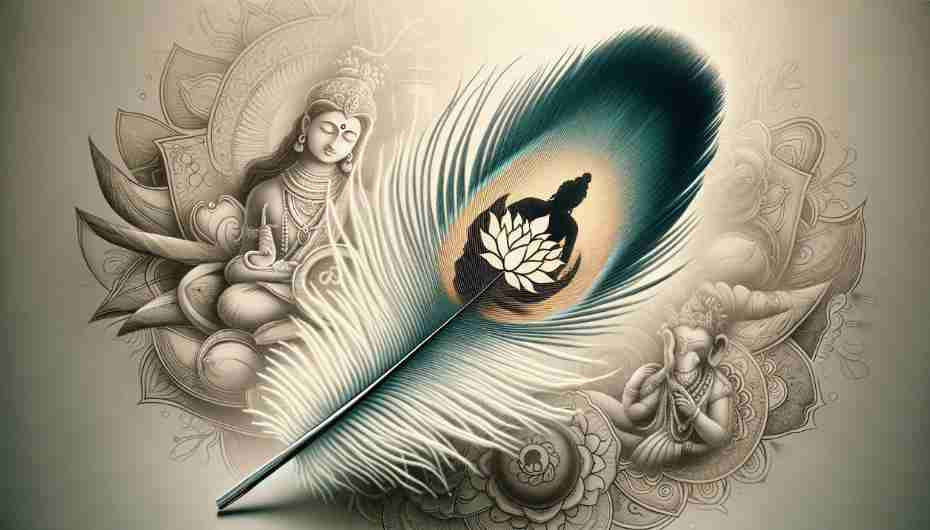
In Hinduism, the pigeon is linked to Saraswati, the goddess of knowledge, music, art, wisdom, and learning. Pigeon feathers represent wisdom, intelligence, and the importance of communication. They symbolize:
- Saraswati: Pigeon feathers underscore the value of knowledge and learning, aligning with the goddess’s attributes.
- Wisdom and Intelligence: These feathers symbolize the pursuit of intellectual growth and understanding.
- Communication: They signify the importance of clear and effective communication, mirroring the bird’s role in carrying messages.
Pigeon Feathers in Celtic Culture
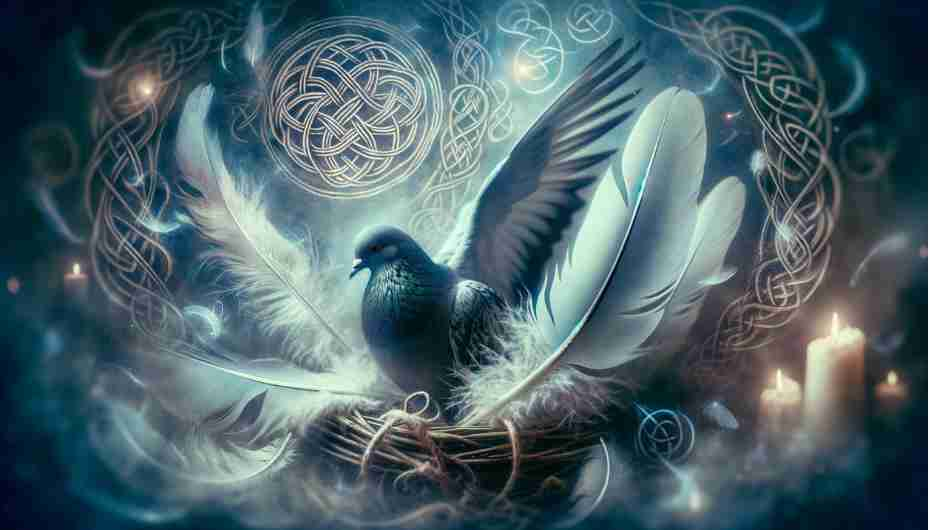
For the Celts, pigeon feathers carried profound spiritual meanings. They were often seen as messengers from the spirit world, providing protection and a connection to otherworldly realms. Pigeon feathers symbolize:
- Spirit World Messengers: Feathers might be perceived as a sign that the spirit world is reaching out.
- Protection: Carrying or finding a pigeon feather could be seen as a protective charm.
- Spiritual Connection: Pigeon feathers might also suggest a strong spiritual connection or an ongoing spiritual journey.
Pigeon Feathers in Native American Culture
In Native American spirituality, pigeons and their feathers are messengers from the spirit world. They symbolize guidance and balance, connecting the physical and spiritual realms. Pigeon feathers represent:
- Messengers: These feathers are viewed as messengers from the spirit world, carrying important messages or signs from ancestors or spirit guides.
- Guidance: Finding a pigeon feather can be interpreted as a sign that one is on the right path or that they are being guided by spiritual forces.
- Balance: Pigeons symbolize harmony and equilibrium in life, reminding individuals to maintain balance in all aspects of their existence.
Pigeon Feathers in Ancient Egypt
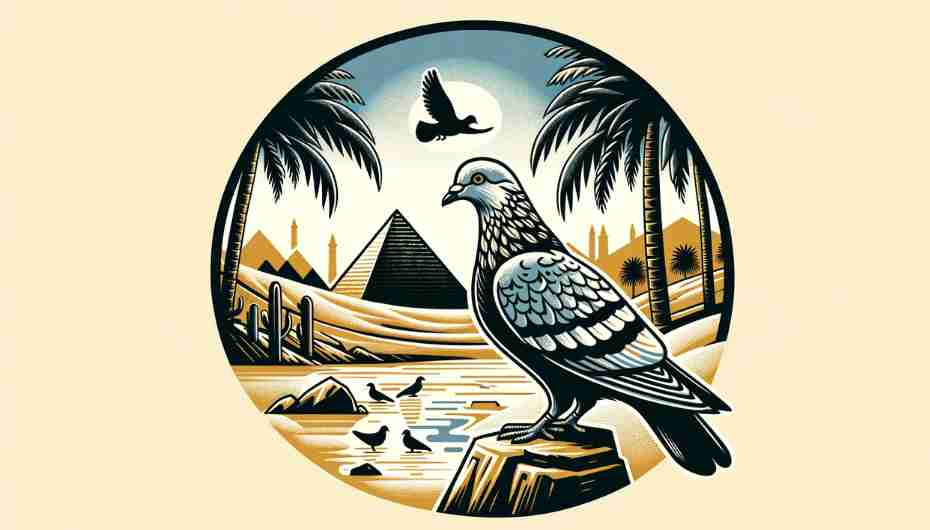
In Ancient Egypt, pigeons and their feathers were associated with sacredness, love, fertility, and a deep spiritual connection with the divine. Pigeon feathers symbolize:
- Sacredness: Feathers were considered sacred and used in religious ceremonies to honor deities.
- Love and Fertility: They symbolize love, family, and the blessings of fertility.
- Spiritual Connection: Pigeon feathers represented a connection to the spiritual world, used as talismans for protection and guidance.
Pigeon Feathers in Japanese Shintoism
In Japanese Shintoism, pigeon feathers symbolize purity, cleansing, and the reception of divine blessings. They are used in purification rituals and are believed to:
- Purity: Pigeon feathers symbolize purity and the removal of impurities, both physical and spiritual, preparing individuals to receive divine blessings.
- Cleansing: Their gentle nature is believed to cleanse the heart and mind.
- Divine Blessings: Pigeon feathers are considered conduits for divine blessings and protection, used in Shinto ceremonies to invoke the favor of spirits and deities.
| Spiritual Context | Symbolic Meaning |
|---|---|
| Christianity | Holy Spirit, divine presence, blessings |
| Hinduism | Wisdom, intelligence, communication |
| Celtic Culture | Messengers, protection, spiritual connection |
| Native American | Messengers, guidance, balance |
| Ancient Egypt | Sacredness, love, fertility, spiritual connection |
| Japanese Shintoism | Purity, cleansing, divine blessings |
Pigeon feathers carry diverse spiritual symbolism across cultures, representing themes such as divine presence, wisdom, protection, and spiritual connection. Their significance reflects the rich tapestry of human beliefs and the deep spiritual connection between humans and nature.
Cultural Significance of Pigeons and Their Feathers
Pigeons, with their rich history and symbolism, have left an indelible mark on various cultures and historical contexts. Their significance ranges from being revered as sacred creatures to playing vital roles in communication during times of war and even symbolizing resilience in urban environments.
Pigeons in Ancient Egypt
Sacred Birds: In ancient Egypt, pigeons held a sacred status, embodying divine qualities and acting as protectors of the people. They were often associated with the goddess Isis, a symbol of motherhood and fertility. Their presence in religious ceremonies underscored their spiritual significance, and they were revered as messengers of the divine.
Religious Rituals: Pigeons were integral to religious rituals in ancient Egypt. Their inclusion in these ceremonies reinforced their role as intermediaries between the mortal world and the divine. Pigeons were even mummified, reflecting their esteemed position in Egyptian culture and the belief in their role in the afterlife.
Pigeons in Chinese Culture
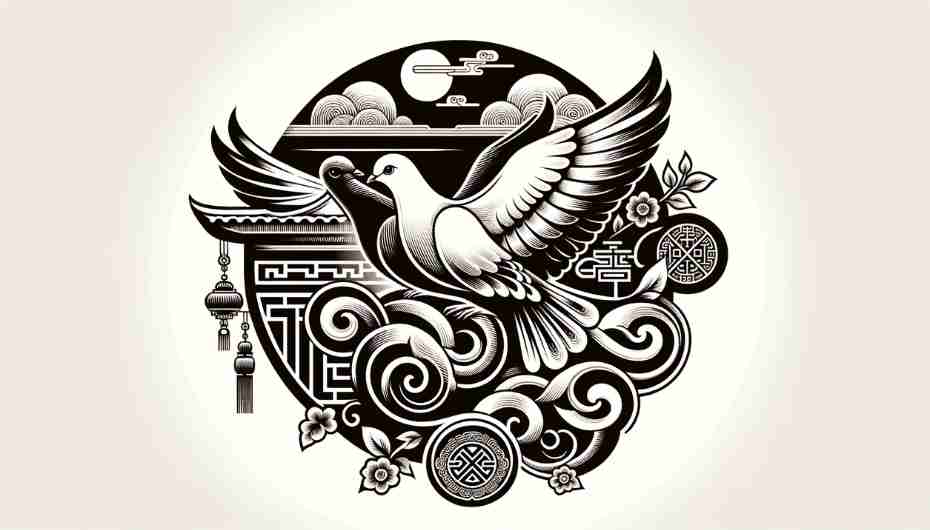
Marital Fidelity: Chinese culture assigns pigeons the symbolic role of representing marital fidelity and devotion. The image of two pigeons together symbolizes faithfulness in marriage and relationships. Gifting pigeons to a couple served as a gesture of commitment and the beginning of a lifelong partnership.
Longevity: Pigeons also embody the wish for a long and prosperous life, both individually and as a couple. They are seen as a symbol of enduring love and the hope for a harmonious and lengthy union.
Betrothal Gifts: Pigeons were exchanged between families as part of betrothal gifts, signifying the promise of a lasting and faithful union. This tradition highlighted the cultural significance of pigeons in celebrating commitment and love.
Pigeons as Messengers and in War
Carrier Pigeons: Pigeons’ remarkable homing abilities made them indispensable as messengers during times of war. These birds were trained to carry vital messages across enemy lines, often playing pivotal roles in wartime communication. Their reliability in delivering messages contributed significantly to military strategies.
Homing Abilities: Pigeons’ innate homing instincts allowed them to navigate and find their way home, even when tasked with traveling long distances. This natural talent made them invaluable for ensuring secure and efficient communication in the midst of conflict.
Pigeons in Urban Environments

Symbols of Urban Life: In contemporary urban settings, pigeons have become emblematic of city life. They adapt to the challenges of urban environments and thrive in the midst of human civilization. Their presence serves as a reminder of the coexistence of nature and urbanity.
Adaptability: Finding a pigeon feather in an urban setting symbolizes the adaptability and resilience required to thrive in changing circumstances and environments. Pigeons’ ability to adapt to the hustle and bustle of city life resonates with the challenges and opportunities of modern urban living.
Pigeons and their feathers hold diverse and profound cultural meanings across different civilizations. From ancient Egypt’s sacredness to China’s symbol of fidelity, pigeons have woven their significance into the tapestry of human history and continue to do so in various ways in today’s urbanized world.
| Cultural Context | Symbolic Meaning |
|---|---|
| Ancient Egypt | Sacredness, divine messengers, religious rituals |
| Chinese Culture | Marital fidelity, longevity, betrothal gifts |
| War and Communication | Vital role in wartime communication |
| Urban Environments | Adaptability, resilience |
Certainly, let’s expand on how to interpret the significance of pigeon feathers and understand the contextual factors that come into play:
Finding Meaning in Pigeon Feathers

Pigeon feathers, like feathers from any other bird, can carry symbolic and spiritual significance for those who encounter them. Interpreting the meaning of a pigeon feather involves a combination of individual beliefs, cultural associations, and the context in which the feather is found.
How to Interpret Pigeon Feathers as Spiritual Signs or Omens
Divine Messages: Some people view the discovery of a pigeon feather as a potential communication from a higher power or the universe. They may interpret it as a sign, message, or omen offering guidance, protection, or reassurance. The specific message may vary depending on the person’s spiritual beliefs and the circumstances surrounding the feather’s appearance.
Spirit Messengers: In various spiritual and belief systems, feathers, especially those of pigeons, are considered messengers from the spiritual realm. These messengers are believed to bring comfort, hope, or a sense of connection to something greater than oneself. The interpretation of a pigeon feather as a spirit messenger often involves a deep sense of reverence and acknowledgment of the unseen forces in the world.
Personal Symbolic Meaning vs. Common Cultural Associations
Personal Associations: While there are common cultural and historical associations with pigeon feathers, individuals may also assign deeply personal and unique meanings to them. Personal interpretations can be influenced by a person’s life experiences, memories, emotions, and intuitive insights. For example, someone might associate a pigeon feather with a specific moment or individual in their life, making it a highly personal symbol.
Common Cultural Meanings: It’s important to consider the broader cultural and historical significance of pigeon feathers when interpreting their meaning. Understanding the common cultural associations can provide valuable insights into their symbolic implications, even if a person’s interpretation is highly personal. For instance, acknowledging that pigeons have been associated with peace and love in many cultures can help contextualize the symbolism of a found feather.
Evaluating the Context Around Encountering a Feather
Location: The location where a pigeon feather is discovered can significantly influence its interpretation. For instance, finding a feather in a natural, serene setting might be seen as a symbol of harmony and connection to nature. Conversely, discovering one in an urban environment might prompt reflections on adaptability and resilience.
Your Emotional State: Your emotional state and specific thoughts at the time of finding the feather can offer clues to its potential significance. Were you feeling anxious and then found the feather, which brought a sense of calm? This emotional transition could shape your interpretation.
Understanding Your Intuitive Reaction to the Feather
Immediate Feelings: Pay close attention to your immediate emotional and intuitive responses when encountering a pigeon feather. Do you feel a sense of awe, peace, or excitement? These feelings can be valuable indicators of the feather’s significance to you.
Personal Intuition: Trust your intuition and inner guidance when seeking to understand the possible messages or symbolism associated with the feather. Often, your intuition can provide subtle but profound insights into the meaning and relevance of the feather in your life.
Interpreting the significance of a pigeon feather is a personal and multifaceted process. It involves a delicate balance between cultural associations, individual beliefs, the context of discovery, and intuitive responses. Whether seen as a spiritual sign, a personal symbol, or a connection to nature, pigeon feathers have the potential to carry deep meaning for those who encounter them.
| Interpreting Pigeon Feathers | Considerations |
|---|---|
| Spiritual Signs or Omens | Individual’s spiritual beliefs, contextual factors |
| Personal vs. Cultural Meaning | Personal experiences, broader cultural significance |
| Evaluating Context | Location, emotional state at the time |
| Understanding Intuition | Immediate feelings, personal intuition |
The exploration of pigeon feathers uncovers a rich spectrum of symbolism across cultures and beliefs. From Christianity to Hinduism, Celtic traditions to Chinese culture, these feathers are more than remnants of a common bird; they are powerful symbols with diverse meanings.
Whether seen as messengers, symbols of wisdom, or emblems of fidelity, pigeon feathers remind us that profound significance often lies in the simplest of things, inviting us to find both universal and personal meaning in their delicate beauty.
Discover similar topics here:






